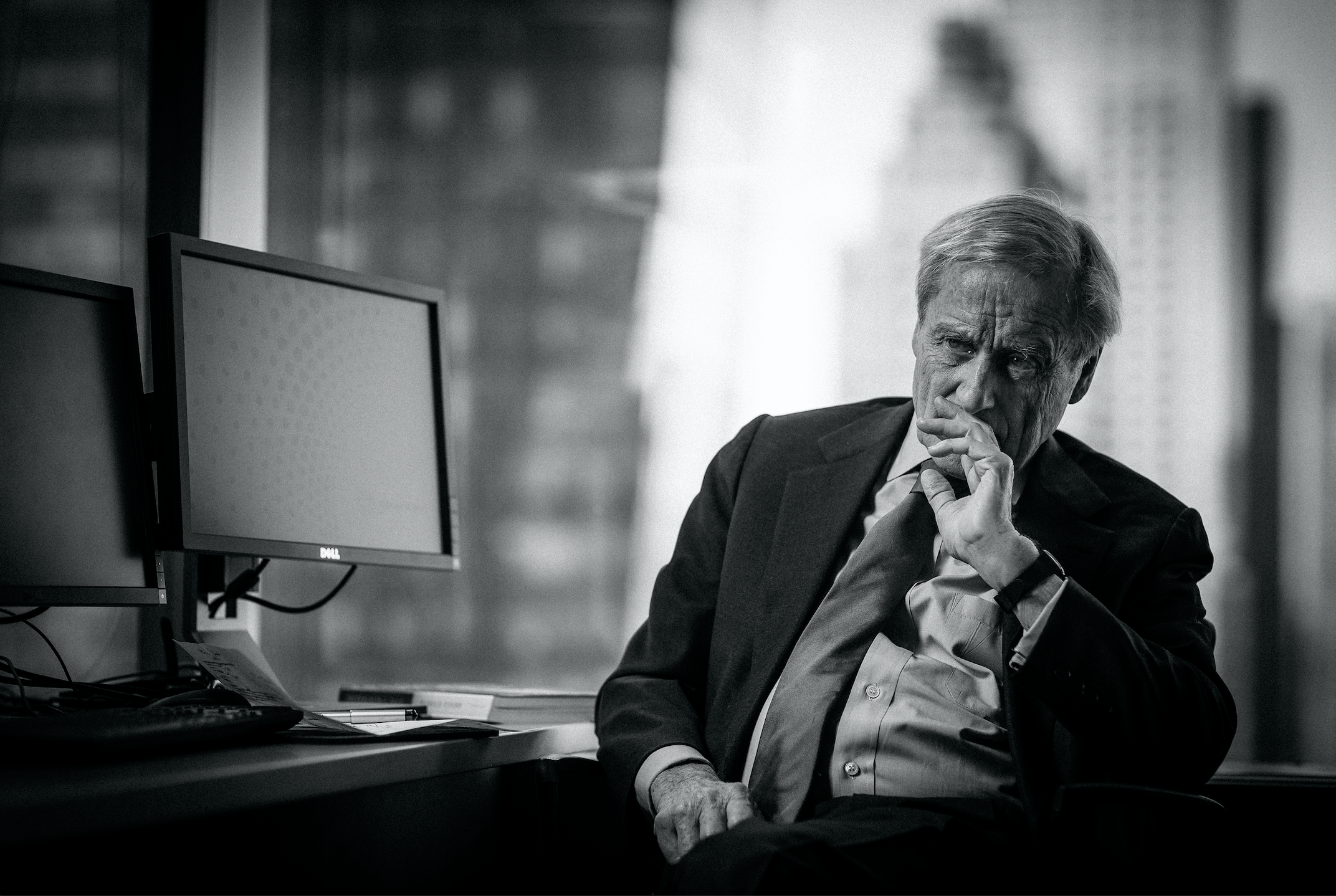Sir Harold Evans by himself, in books and interviews
By Luciana Gurgel | MediaTalks, London
Articles written about the legendary British editor Sir Harold Evans after his death on September 23, at the age of 92, in New York, recalled the importance of quality journalism for the good of society. And how brave he was to defy the Supreme Court in the thalidomide scandal, a sickness drug that has caused deformities in children around the world.

Evans, who has been knighted for his services to journalism, left important lessons in books and interviews.
MediaTalks has selected some of the editor’s quotes and sources for those who want to know more about his thoughts on what journalism is about.
“In journalism it is simpler to sound off than it is to find out. It is more elegant to pontificate than it is to sweat.”
“Journalism is not easy. It’s the first rough draft. I don’t think you need to wait around until you have the definitive thing. You record what’s there; don’t delude yourself that this is the ultimate historical view.
“I think there’s a lot of benefit in letting people vent. When I was on the Manchester Evening News, we got 500 letters a day, and part of my job as editor was to edit them. And I thought that was one of the best things in the newspaper, and it was instituted by an editor known as Big Tom, who said ‘this is the voice of the people.’ And he was quite right.
“Some blogs have become the best check on monopoly mainstream journalism, and they provide a surprisingly frequent source of initiative reporting.”
“Transmitting information is easier than creating understanding.”
Interviews
 BBC The Documentary Podcast |Razia Iqbal interviews and listens again to the archive from British newspaper man Harold Evans, whose name has become a byword for serious investigative journalism. From his flat in New York, she speaks to Sir Harry about giving voice to the voiceless, risking going to prison and changing British law in his lifelong pursuit of the truth.
BBC The Documentary Podcast |Razia Iqbal interviews and listens again to the archive from British newspaper man Harold Evans, whose name has become a byword for serious investigative journalism. From his flat in New York, she speaks to Sir Harry about giving voice to the voiceless, risking going to prison and changing British law in his lifelong pursuit of the truth.

MediaMasters Podcast | In this in-depth interview, he takes us through his 60-year career from his very first reporting job in the aftermath of World War II, reflects on his move to New York and later career in publishing.
Documentary

Attacking the Devil: a documentary on Harold Evans battle to expose the truth about the dangerous drug thalidomide and obtain compensation for its victims. A trailer can be seen here.
Books
(summary reviews from Amazon.com.uk)
 In 1981, Harold Evans was the editor of one of Britain’s most prestigious publications, the Sunday Times, which had thrived under his watch. When Australian publishing baron Rupert Murdoch bought the daily Times of London, he persuaded Evans to become its editor with guarantees of editorial independence. But after a year of broken promises and conflict over the paper’s direction, Evans departed amid an international media firestorm. Evans’s story is a gripping behind-the-scenes look at Murdoch’s ascension to global media magnate. It is Murdoch laid bare, an intimate account of a man using the power of his media empire for his own ends. Riveting, provocative, and insightful, Good Times, Bad Times is as relevant today as when it was first written. This book features a new preface by the author, in which he discusses the Rupert Murdoch phone-hacking scandal.
In 1981, Harold Evans was the editor of one of Britain’s most prestigious publications, the Sunday Times, which had thrived under his watch. When Australian publishing baron Rupert Murdoch bought the daily Times of London, he persuaded Evans to become its editor with guarantees of editorial independence. But after a year of broken promises and conflict over the paper’s direction, Evans departed amid an international media firestorm. Evans’s story is a gripping behind-the-scenes look at Murdoch’s ascension to global media magnate. It is Murdoch laid bare, an intimate account of a man using the power of his media empire for his own ends. Riveting, provocative, and insightful, Good Times, Bad Times is as relevant today as when it was first written. This book features a new preface by the author, in which he discusses the Rupert Murdoch phone-hacking scandal.

My Paper Chase – From a wartime beach in Wales to the gleaming skyscrapers of twenty-first-century Manhattan, the extraordinary career of Fleet Street legend Harold Evans has spanned five decades of tumultuous social, political and creative change. Just how did a working class Lancashire boy, who failed the eleven-plus, rise to a position where he could so effectively give voice to the unheard?
 Essential English is an indispensable guide to the use of words as tools of communication. It is written primarily for journalists, yet its lessons are of immense value to all who face the problem of giving information, whether to the general public or within business, professional or social organisations.
Essential English is an indispensable guide to the use of words as tools of communication. It is written primarily for journalists, yet its lessons are of immense value to all who face the problem of giving information, whether to the general public or within business, professional or social organisations.

Do I Made Myself Clear? Harry Evans has edited everything from the urgent files of battlefield reporters to the complex thought processes of Henry Kissinger, and he has been knighted for his services to journalism. In Do I Make Myself Clear?,his definitive guide to writing well, Evans brings his indispensable insight to the art of clear communication.
The right words are oxygen to our ideas, but the digital era, with all of its TTYL, LMK and WTF, has been cutting off that oxygen flow. The compulsion to be precise has vanished from our culture, and in writing of all kinds we see a trend towards more – more speed and more information, but far less clarity. Evans provides practical examples of how editing and rewriting can make for better communication, even in the digital age.
Luciana Gurgel, is a Brazilian journalist based in London. She begun her editorial career at O Globo, one of the leading Brazilian media organisations. Later she founded (along with Aldo de Luca) Publicom, a successful corporate communications agency, acquired in 2016 by Weber Shandwick (IPG Group). In London, she has been working as news correspondent for Brazilian media – MyNews Channel, J&Cia – to which she writes a weekly column on trends and issue related to the news industry. The column originated a separate platform, MediaTalks, headed by Luciana from London as Editor-in-Chief, in association with Jornalistas Editora.
luciana@jornalistasecia.com.br | @lcnqgur













